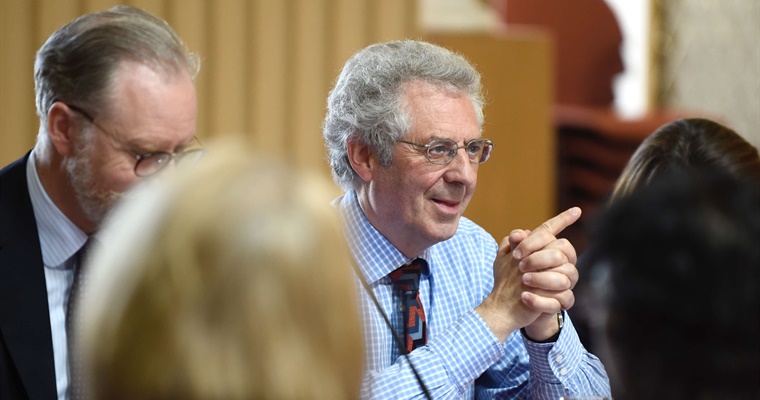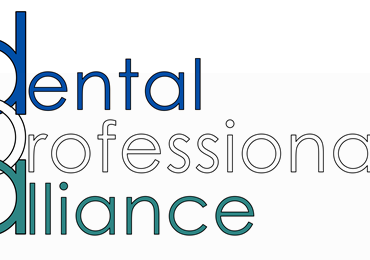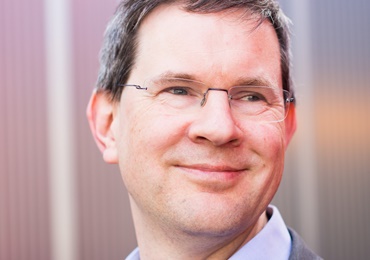Bill Moyes' post-October Council blog

Our October meeting was a notable milestone for a number of key activities in the GDC calendar, and several important decisions were approved by Council, which will be of relevance to our registrants and stakeholders.
Reflecting on the meeting, what has become very clear to me, and indeed my fellow Council members, is that the GDC we have today is quite a different organisation to the one that I joined. Over the last few years the GDC has undergone a period of significant
change. We have developed and evolved, transforming how we plan, forecast and control the organisation, and as a result we have become much more transparent in our approach to regulation.
In recent years we have completely reviewed and overhauled our ways of working including a full review of operating and financial models. This resulted in our decision to move our operational activities to our new offices in Birmingham, and by the end
of 2019 almost two thirds of our staff will be based there. This move has delivered a number of key benefits including access to a strong labour market as well as significant cost savings. We are in a strong position to really take forward our agenda
and deliver against our five strategic aims over the next three years.
Following the discussions and sign off of our new Corporate Strategy and Costed Corporate Plan, which I’ll talk more about later, we were very pleased to be able
to announce a reduction of the annual retention fee (ARF) levels for all dental professionals.
These new levels have been set at:
• £680 for dentists
• £114 for dental care professionals
Both these changes apply to the next rounds of ARF collection, which for dentists is by 31 December 2019, and for dental care professionals is by 31 July 2020.
These lower levels reflect the expected costs of regulating dentists and dental care professionals over the next three years. They are possible due to our reduced operating costs, robust financial controls and the significant changes we have made to the
organisation. In addition, they reflect our aim to remove cross subsidy between different registrant groups wherever practicable, including the introduction of an assessment fee for new applicants which is planned for next year.
We announced these new levels as soon as they were approved last week, and I have been very pleased with the supportive feedback we have received so far from many registrants and professional bodies. The response from the profession has been almost universally
positive and I am delighted that you all welcome this development.
As many of you will be aware, we consulted on our new Corporate Strategy over the summer and at this month’s Council meeting we reviewed and signed off our response. We received 80 responses and following a review of your feedback we will be making
a number of small changes to our final Corporate Strategy document for 2020-2022.
We will publish this towards the end of this year, along with a Costed Corporate Plan (CCP), which will lay out our detailed plans and priorities for the next three years.
This CCP and strategy is another step on our journey following the launch of Shifting the balance in 2017. Shifting the balance identified a number of proposals and concepts around our vision to adjust our focus from enforcement towards prevention, known as upstream activity, and I strongly believe that our new strategy and CCP will bring this
vision to life, providing the detail and plans that will enable us to deliver on our strategy.
In addition, we approved our budget for the next three years. This has been created based on the plans and projects to support the delivery of our Corporate Strategy. The budget has been set at a total of £121.6 million over the next three years,
and includes a figure of £40.4 million for 2020, which is a 6% reduction compared to our budget for 2019.
We also approved proposals to introduce a registration fee for new applicants looking to join our registers. This means that applicants will now meet the cost of their application, and this change has been introduced in line with our commitment to ensure
that, wherever practicable, the costs of regulation lie where they occur. These changes and new fees will be effective from the start of January 2020.
We believe that this is a fairer system and means that these application costs will no longer be borne by registrants.
Finally, I would like to take the opportunity to thank all the staff who have worked tirelessly to develop and present a very comprehensive plan and robust budget for the next three years. The high level of detail provided to me and my fellow Council
members has given us the confidence that these plans have been thoroughly considered and costed, and that they support our objectives to ensure dentistry in the UK is safe and that the public can have confidence in the profession.
 eGDC
eGDC














